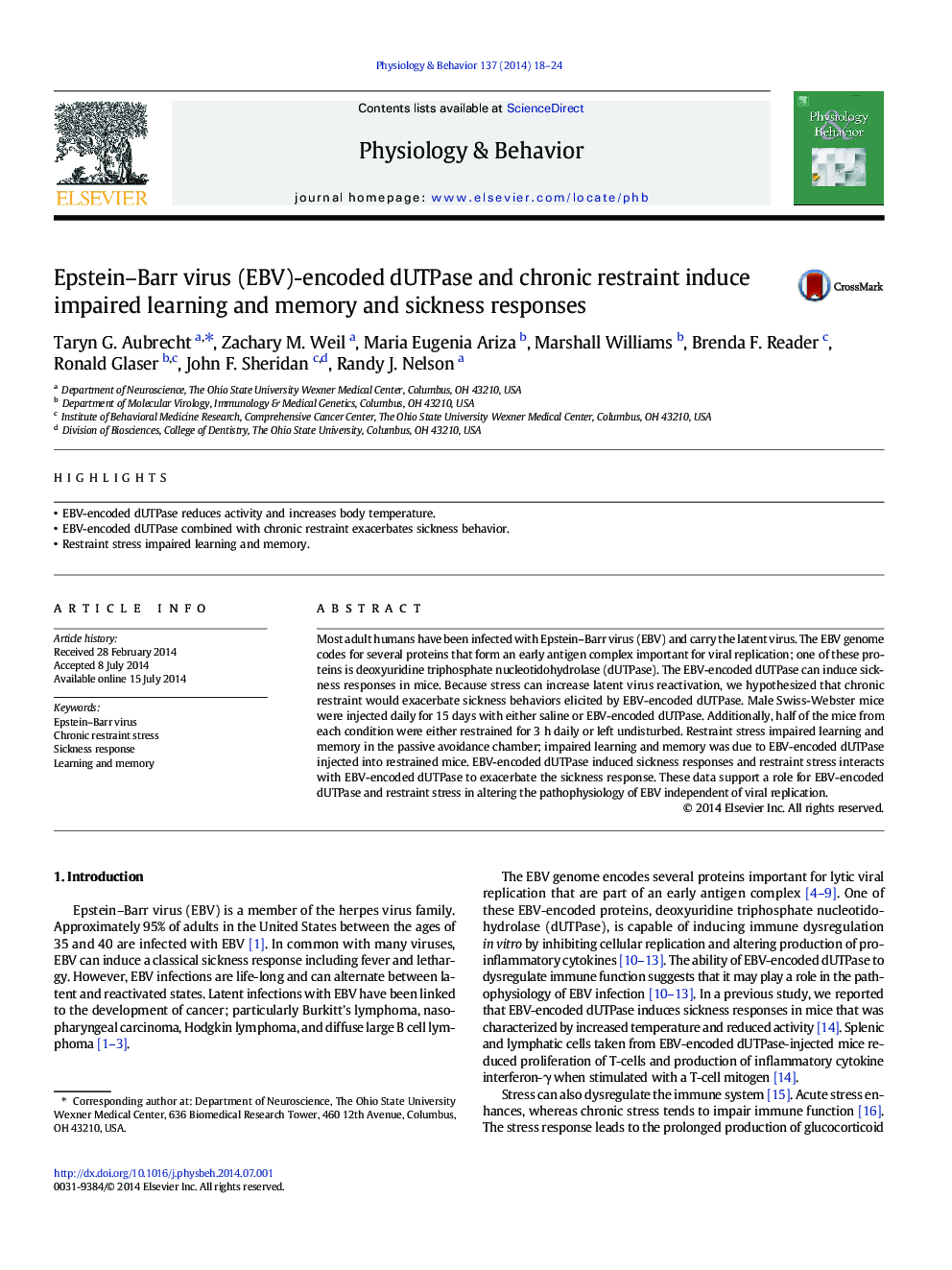| Article ID | Journal | Published Year | Pages | File Type |
|---|---|---|---|---|
| 5924113 | Physiology & Behavior | 2014 | 7 Pages |
Abstract
Most adult humans have been infected with Epstein-Barr virus (EBV) and carry the latent virus. The EBV genome codes for several proteins that form an early antigen complex important for viral replication; one of these proteins is deoxyuridine triphosphate nucleotidohydrolase (dUTPase). The EBV-encoded dUTPase can induce sickness responses in mice. Because stress can increase latent virus reactivation, we hypothesized that chronic restraint would exacerbate sickness behaviors elicited by EBV-encoded dUTPase. Male Swiss-Webster mice were injected daily for 15Â days with either saline or EBV-encoded dUTPase. Additionally, half of the mice from each condition were either restrained for 3Â h daily or left undisturbed. Restraint stress impaired learning and memory in the passive avoidance chamber; impaired learning and memory was due to EBV-encoded dUTPase injected into restrained mice. EBV-encoded dUTPase induced sickness responses and restraint stress interacts with EBV-encoded dUTPase to exacerbate the sickness response. These data support a role for EBV-encoded dUTPase and restraint stress in altering the pathophysiology of EBV independent of viral replication.
Related Topics
Life Sciences
Biochemistry, Genetics and Molecular Biology
Physiology
Authors
Taryn G. Aubrecht, Zachary M. Weil, Maria Eugenia Ariza, Marshall Williams, Brenda F. Reader, Ronald Glaser, John F. Sheridan, Randy J. Nelson,
